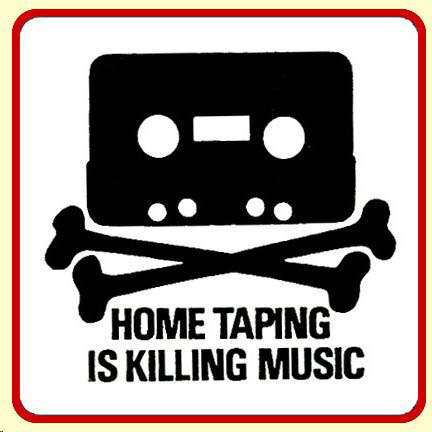Schwarz
View current page
...more recent posts
This story also led us to the streets. We called our colleague, Steve Edwards at WBEZ, to see if he could help us locate any hidden grills in Chicago. He contacted The Chicago Coalition for the Homeless, which in turn put us in touch with Jeffrey Newton. Jeffry has been homeless or in shelters most all his life, from boy's homes, to reformatories, to prison by age 17. Then he moved out on the streets, where every day he goes "trailblazing" -- looking for food, shelter, work, the resources he needs to make it through the day.kitchen sisters / hidden kitchens
Jeffry learned to cook from his grandmother. He feels an urge to cook, especially for other people -- under the overpass on Chicago's Wacker Drive; on a George Foreman Grill plugged into a power pole; with a hot clothing iron to toast a grilled cheese sandwich.
In fact, Goldfinger was a modernist. In a not-so-subtle piece of social criticism, Ian Fleming took the name of his most villainous character from a Marxist architect, Erno Goldfinger, known for dramatic high-rise residential towers whose forms echoed the reduced, brutal lines of grain silos and cement factories. Like many Britons, Fleming was appalled by the way buildings like Goldfinger's were transforming London's 19th-century skyline. Prince Charles continues this crusade against the "monstrous carbuncles" of modernist design to this day.
I've been thinking about this stuff recently because I'm in Italy again, staying in an apartment in that retro-Renaissance city, Venice, with only techno-dystopian DVDs like Blade Runner and Until The End of the World to while away the hours (it's been a bit rainy). I've also been to Milan, where I saw a wonderful exhibition called Inventing the Future, a retrospective about the work of industrial designer Joe Colombo, who died of a heart attack on his 41st birthday in 1971.
Colombo's last project interested me the most: the Total Furnishing Unit developed for the 1972 MOMA exhibition Italy: The New Domestic Landscape.
Influenced by the space program, the Total Furnishing Unit was a capsule for Earth living, a 28-square meter "habitat cell" consisting of kitchen, cupboard, bed and bathroom, all made of molded plastic, ready to be arranged as an all-in-one living solution -- a kind of capsule pod -- at the center of an open-plan space.
Resourceful environmental leaders have unearthed opportunity amidst the wreckage left behind by this year's record hurricane season and the battering of the Gulf Coast. They've crafted plans for everything from the building of new, green, affordable housing to the tightening of auto fuel-economy standards.
Of course, powerful people with less eco-friendly agendas have seen opportunity too. In their eyes, the devastating storms were not-so-green lights to fast-track brown legislation.
Such efforts to exploit the hurricanes for different political ends will no doubt continue as the process of rebuilding New Orleans and other devastated communities stretches over years or decades.
Here we examine 17 proposals -- both pro- and anti-environment -- that flooded in soon after Katrina and Rita, and offer predictions for their success.
In the weeks since President George Bush’s speech in New Orlean’s Jackson Square, in which he promised to spare no effort in rebuilding the area, FEMA has alarmingly failed to advance any plan for the return of evacuees to temporary housing within the city or to connect displaced locals with reconstruction jobs. In fact, new barriers are being erected against their return. In Mississippi’s ruined coastal cities, as well as in metropolitan New Orleans, landlords, galvanized by rumors of gentrification and soaring land values, are beginning to institute mass evictions. (Although the oft-cited Lower Ninth Ward is actually a bastion of blue-collar homeownership, most poor New Orleanians are renters.)
Civil-rights lawyer Bill Quigley has described how renters have returned “to find furniture on the street and strangers living in their apartments at higher rents, despite an order by the Governor that no one can be evicted before October 25. Rents in the dry areas have doubled and tripled.”
Secretary of Housing Alfonso Jackson, meanwhile, seems to be working to fulfill his notorious prediction that New Orleans is “not going to be as black as it was for a long time, if ever again.” Charlestine Jones, spokesperson for the Forest Park Tenants Association, recently protested that the agencies in charge of these housing complexes, including HUD, “are using allegations of storm damage to these complexes as a pretext for expelling working-class African-Americans, in a blatant attempt to co-opt our homes and sell them to developers to build high-priced housing.”
Minority homeowners also face relentless pressures not to return. Insurance compensation, for example, is typically too small to allow homeowners in the eastern wards of New Orleans to rebuild if and when authorities re-open their neighborhoods.
Similarly, the Small Business Administration—so efficient in recapitalizing the San Fernando Valley in the aftermath of the 1994 Los Angeles earthquake—has so far dispensed only a few million dollars despite increasingly desperate pleas from tens of thousands of homeowners and small businesspeople facing imminent foreclosure or bankruptcy.
In fact, brokers say, many New Orleans houses are commanding higher-than-pre-Katrina prices, largely because of a shortage of habitable dwellings. True, the speculation that occurred in nearby cities like Baton Rouge (where prices shot up as much as 30 percent after the storm) hasn't come to New Orleans.
But undamaged homes in desirable neighborhoods are bringing in 5 to 10 percent more than they did in August before the hurricane hit, according to Arthur Sterbcow, president of Latter & Blum Realtors, the city's oldest real estate brokerage firm.
At the same time, in parts of the city devastated by the storm, no one is making offers yet, brokers say, while attendance at open houses is way down.
neutra's cyclorama building at gettysburg and the painted solders once inside
secret garden of the high line
ballad of fat elvis
ref sony root-kit
EFF has confirmed the presence of XCP on the following titles (each has a data session, easily read on a Macintosh, that includes a file called "VERSION.DAT" that announces what version of XCP it is using). If you have one of these CDs, and you have a Windows PC (Macs are totally immune, as usual), you may have caught the XCP bug.
The crux of the debate is this: When you buy a song, an album, or a movie, are you buying the content only in the form it comes in? If you purchase a song from Apple's iTunes store, should you be able to play it on any hardware you want? Not according to Apple, which bundles each download with a "digital rights management" scheme called FairPlay. When you pay 99 cents for the latest Sheryl Crow hit, it's stored on your hard drive as an encrypted file. Every time you play it on your computer with iTunes or on your iPod, it is unlocked with a random encryption key supplied by Apple. FairPlay allows you to load a song on up to five computers and an unlimited number of iPods and burn as many CDs as you please. But you can't e-mail a song to a friend, you can't distribute it over the Web, and you can't play it on anything but iTunes or an iPod.
Debra Burlingame doesn’t live in New York [City], and her brother didn’t die there. Her agenda is based on emotion and the righteous rage of loss. She is not considering the life of New Yorkers, but the loss of life surrounding her. Pataki and Clinton are both looking at 2008 presidential bids, their conservative rhetoric are pre-campaign insurances that they can ride the neo-conservative wave to the White House. Again, there is no consideration for the people of New York or the cultural future of Manhattan. What Pataki, Clinton and Burlingame are responsible for through their shortsighted opportunism is cultural death in Lower Manhattan.
The controversy promises to erupt on Thursday at 7 p.m. at the New York Public Library's Celeste Bartos Forum, when the debate will be joined by members of the guild, the publishers' association and Google. Also in the fray will be Lawrence Lessig of Stanford Law School, Chris Anderson, editor in chief of Wired Magazine, and Paul LeClerc and David Ferriero from the library (which is participating in Google Print).
But as I argued in a version of this column in The International Herald Tribune last month, contention is commonplace during eras of technological change. When Defoe and Addison were demanding consideration in London 300 years ago, the right to "copy" or publish any book was held not by the author but by members of London's Stationers' Company - booksellers and printers - who held a monopoly on that right in perpetuity. That seemed reasonable during the century after the introduction of the printing press and the considerable expenses needed to print, distribute and sell a book to the small literate public.
But by the beginning of the 18th century, printing was becoming less expensive, international and provincial publishers were offering competition, literacy increased and authors grew in public stature. So over the next half-century, British laws limited the control of the Stationers and expanded the rights of authors, while also putting time limits on all forms of control, creating what became the public domain.
Then came another wave of technological change: the industrial revolution. And similar controversies erupted. Inventions were once relatively immune from copying because of the craft they required; execution could seem more difficult than coming up with the idea. Once manufacturing was mechanized, though, the idea itself could become vulnerable, leading to both increased governmental control and increased industrial espionage. Britain prohibited the export of machinery while the fledgling United States welcomed insiders with information from there.

